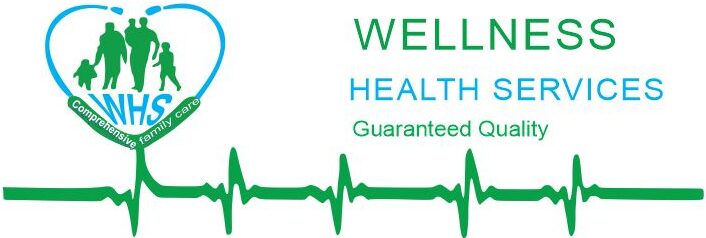What if the most powerful medicine you could ever take didn’t come in a pill—but in a breath?
In our fast-paced, hyper-connected world, stress has quietly become one of the deadliest triggers of modern disease. But there’s a scientifically proven antidote—one that costs nothing, has no side effects, and is available to you right now. It’s called mindfulness and meditation.
🌿 The Silent Killers: Stress, Inflammation & Chronic Disease
Chronic stress is not just an emotional state—it’s a physiological disaster in motion. Studies show it increases your risk of:
- Heart disease
- Type 2 diabetes
- Hypertension
- Depression & anxiety
- Autoimmune diseases
- Cancer progression
The culprit? A constant flood of cortisol and inflammatory chemicals. Left unchecked, they slowly wear down your body’s natural defense systems.
🧘🏽♂️ Mindfulness: Your Brain’s Reset Button
Mindfulness is the practice of being fully present in the moment—without judgment. It may sound simple, but its benefits are profound. When practiced consistently, mindfulness:
- Lowers cortisol
- Reduces blood pressure
- Improves immune function
- Decreases inflammation
- Strengthens brain networks for focus and calm
💡 Did you know?
Harvard researchers found that just 8 weeks of mindfulness meditation can physically shrink the brain’s fear center (the amygdala) and strengthen the prefrontal cortex (your decision-making hub).
🛡️ Meditation as Preventive Medicine
From ancient traditions to modern neuroscience, meditation is now being validated as a tool for disease prevention. Here’s how:
✅ 1. Cardiovascular Health
Regular meditation lowers heart rate and blood pressure, reducing the risk of strokes and heart attacks.
✅ 2. Mental Health Protection
Mindfulness reduces anxiety, improves sleep, and builds emotional resilience—key to preventing burnout, depression, and cognitive decline.
✅ 3. Immune System Boost
Mindful breathing and relaxation techniques increase white blood cell activity and help regulate inflammation.
✅ 4. Cancer & Chronic Illness Support
While not a cure, mindfulness helps patients manage pain, cope with anxiety, and even improve treatment response.
🌟 Real-Life Story:
Meet Grace, a 52-year-old nurse who suffered from hypertension, insomnia, and chronic migraines. After adopting a 10-minute morning meditation and breathing routine, she saw her blood pressure normalize, migraines vanish, and her sense of peace restored—all without increasing medication.
🚀 How to Start Your Mindfulness Practice Today
You don’t need incense, a retreat, or a guru. Here’s a quick start guide:
- Start with just 5 minutes a day—focus on your breath.
- Use guided meditation apps like Headspace, Calm, or Insight Timer.
- Practice mindful eating—savor each bite.
- Pause before reacting in stressful moments.
- Incorporate gratitude journaling to rewire your mind for positivity.
🟢 Final Word:
Stillness is strength. Awareness is power. And meditation is the bridge between stress and serenity. As modern medicine finally embraces what ancient wisdom taught us long ago—healing begins within.
“You should sit in meditation for 20 minutes a day, unless you’re too busy. Then you should sit for an hour.” – Zen proverb
- mindfulness and disease prevention
- meditation for health
- stress reduction techniques
- how to prevent disease naturally
- mental wellness for chronic illness
- benefits of mindfulness meditation
- holistic health practices
- daily meditation routine
📚 References:
- McEwen, B. S. (2008). Central effects of stress hormones in health and disease: Understanding the protective and damaging effects of stress and stress mediators. European Journal of Pharmacology, 583(2–3), 174–185. https://doi.org/10.1016/j.ejphar.2007.11.071
- Holzel, B. K., et al. (2011). Mindfulness practice leads to increases in regional brain gray matter density. Psychiatry Research: Neuroimaging, 191(1), 36–43. https://doi.org/10.1016/j.pscychresns.2010.08.006
- Brook, R. D., et al. (2013). Beyond medications and diet: alternative approaches to lowering blood pressure. Hypertension, 61(6), 1360–1383. https://doi.org/10.1161/HYP.0b013e318293645f
- Goyal, M., et al. (2014). Meditation programs for psychological stress and well-being: a systematic review and meta-analysis. JAMA Internal Medicine, 174(3), 357–368. https://doi.org/10.1001/jamainternmed.2013.13018
- Black, D. S., et al. (2016). Mindfulness meditation and the immune system: a systematic review of randomized controlled trials. Annals of the New York Academy of Sciences, 1373(1), 13–24. https://doi.org/10.1111/nyas.12998
- Carlson, L. E., et al. (2003). Mindfulness-based stress reduction in relation to quality of life, mood, symptoms of stress, and immune parameters in breast and prostate cancer outpatients. Psychosomatic Medicine, 65(4), 571–581. https://doi.org/10.1097/01.PSY.0000074003.35911.41
Top of Form
Bottom of Form

